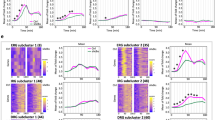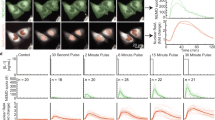Abstract
Reactive oxygen species (ROS) has been implicated as an inducer of NF-κB activity in numbers of cell types where exposure of cells to ROS such as H2O2 leads to NF-κB activation. In contrast, exposure to oxidative stress in certain cell types induced reduction of tumor necrosis factor (TNF)-induced NF-κB activation. And various thiol-modifying agents including gold compounds and cyclopentenone prostaglandins inhibit NF-κB activation by blocking IκB kinase (IKK). To understand such conflicting effect of oxidative stress on NF-κB activation, HeLa cells were incubated with H2O2 or diamide and TNF-induced expression of NF-κB reporter gene was measured. NF-κB activation was significantly blocked by these oxidizing agents, and the inhibition was accompanied with reduced nuclear NF-κB and inappropriate cytosolic IκB degradation. H2O2 and diamide also inhibited IKK activation in HeLa and RAW 264.7 cells stimulated with TNF and lipopolysaccharide, respectively, and directly blocked IKK activity in vitro. In cells treated with H2O2 alone, nuclear NF-κB was induced after 2 h without detectible degradation of cytosolic IkBa or activation of IKK. Our results suggest that ROS has a dual effect on NF-κB activation in the same HeLa cells: it inhibits acute IKK-mediated NF-κB activation induced by inflammatory signals, while longer-term exposure to ROS induces NF-κB activity through an IKK-independent pathway.
Similar content being viewed by others
Article PDF
Author information
Authors and Affiliations
Rights and permissions
This is an Open Access article distributed under the terms of the Creative Commons Attribution Non-Commercial License (http://creativecommons.org/licenses/by-nc/3.0/) which permits unrestricted non-commercial use, distribution, and reproduction in any medium, provided the original work is properly cited.
About this article
Cite this article
Byun, MS., Jeon, KI., Choi, JW. et al. Dual effect of oxidative stress on NF-κB activation in HeLa cells. Exp Mol Med 34, 332–339 (2002). https://doi.org/10.1038/emm.2002.47
Published:
Issue date:
DOI: https://doi.org/10.1038/emm.2002.47
Keywords
This article is cited by
-
Crosstalk of reactive oxygen species and NF-κB signaling
Cell Research (2011)
-
Synergistic Effect of Tumor Necrosis Factor-Alpha and Hydrogen Peroxide on the Induction of IL-8 Production in Human Intestinal Caco-2 Cells
Inflammation (2011)
-
Biphasic Role of Nuclear Factor-k B on Cell Survival and COX-2 Expression in SOD1 Tg Astrocytes after Oxygen Glucose Deprivation
Journal of Cerebral Blood Flow & Metabolism (2006)
-
Biological functions and metabolic fate of vitamin E revisited
Journal of Biomedical Science (2004)



